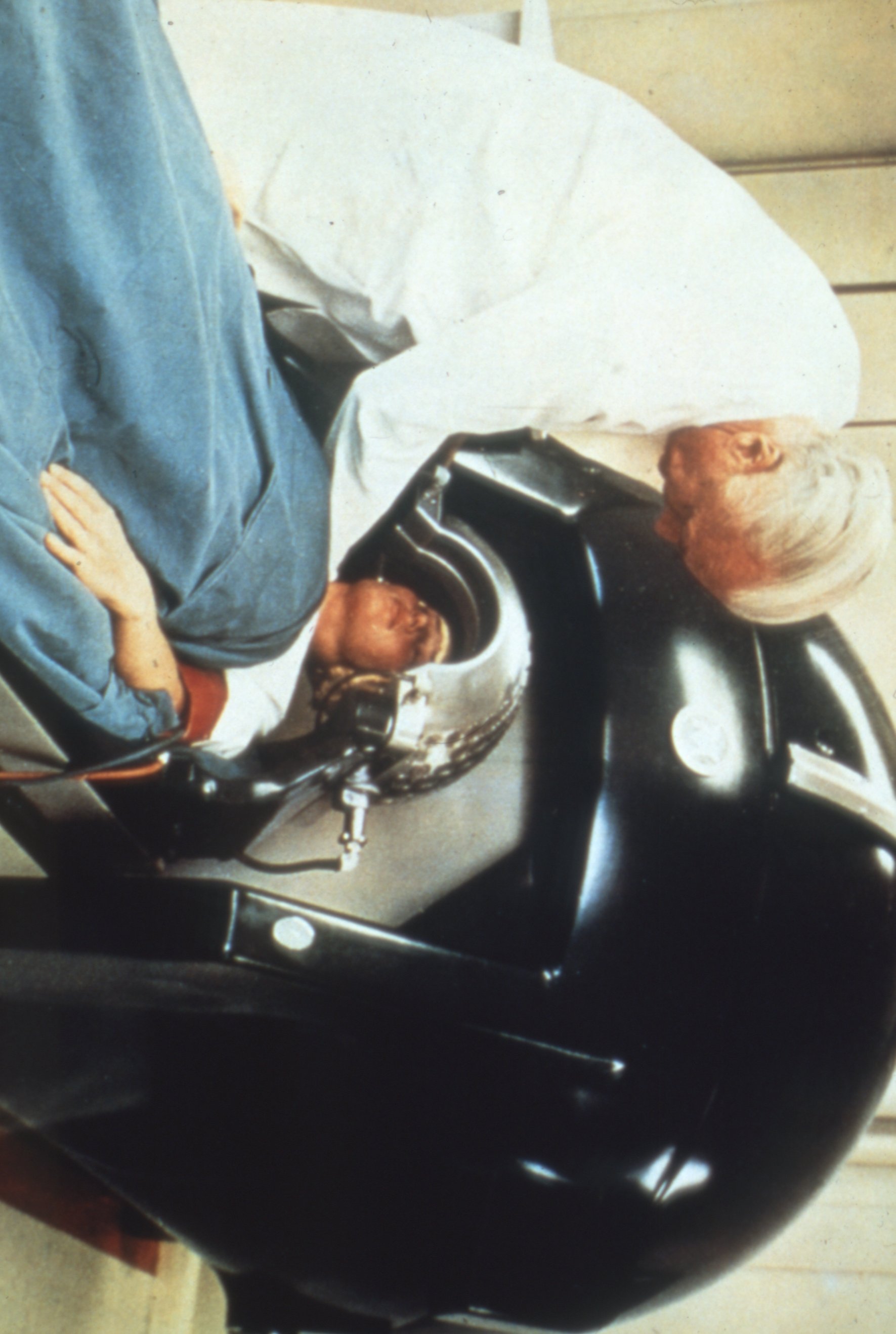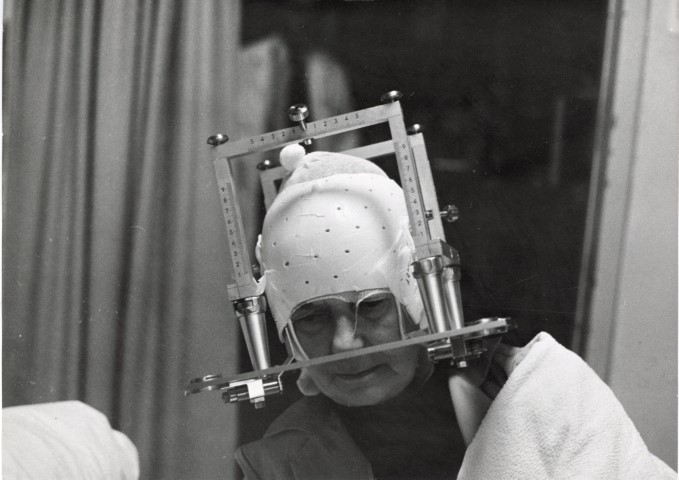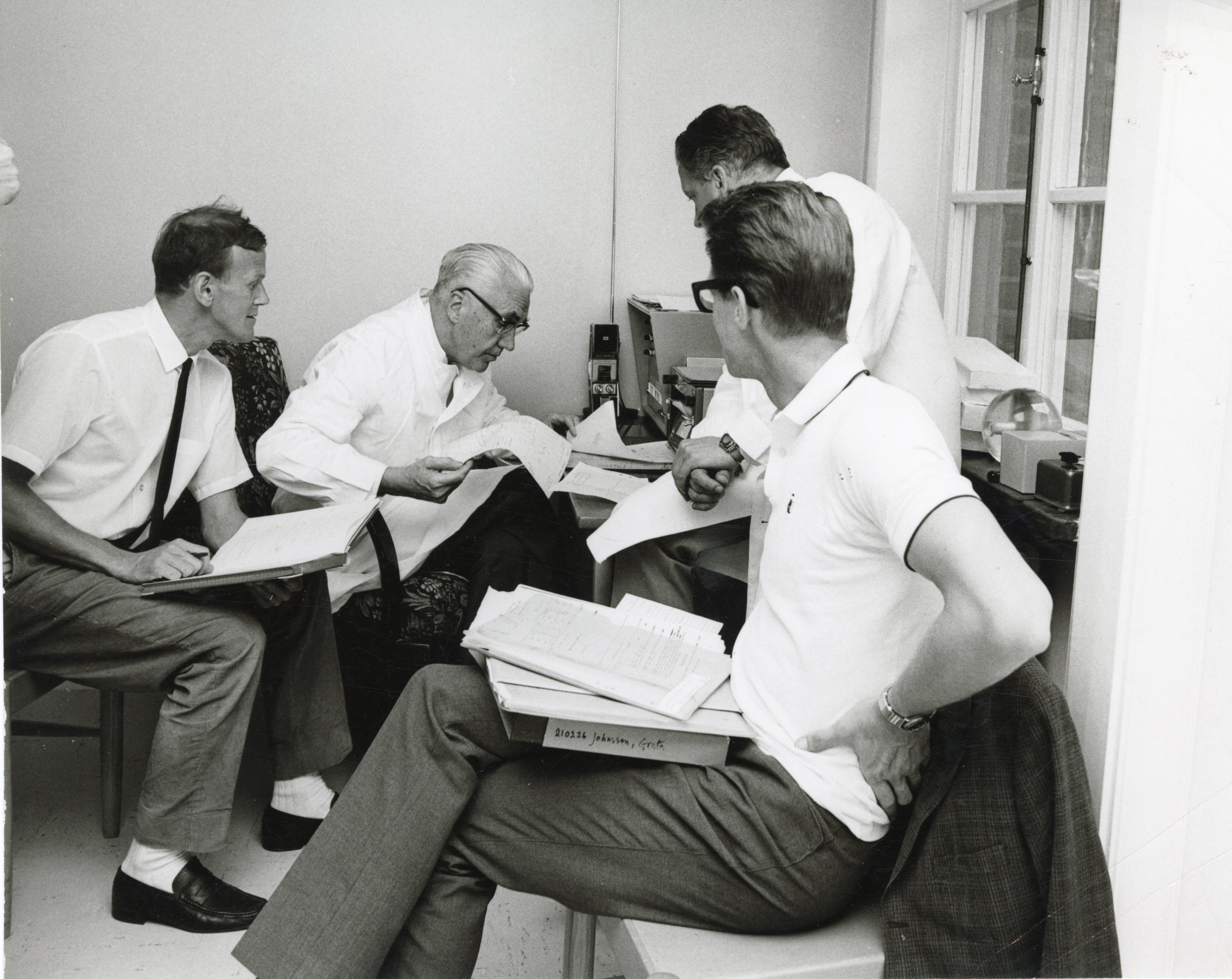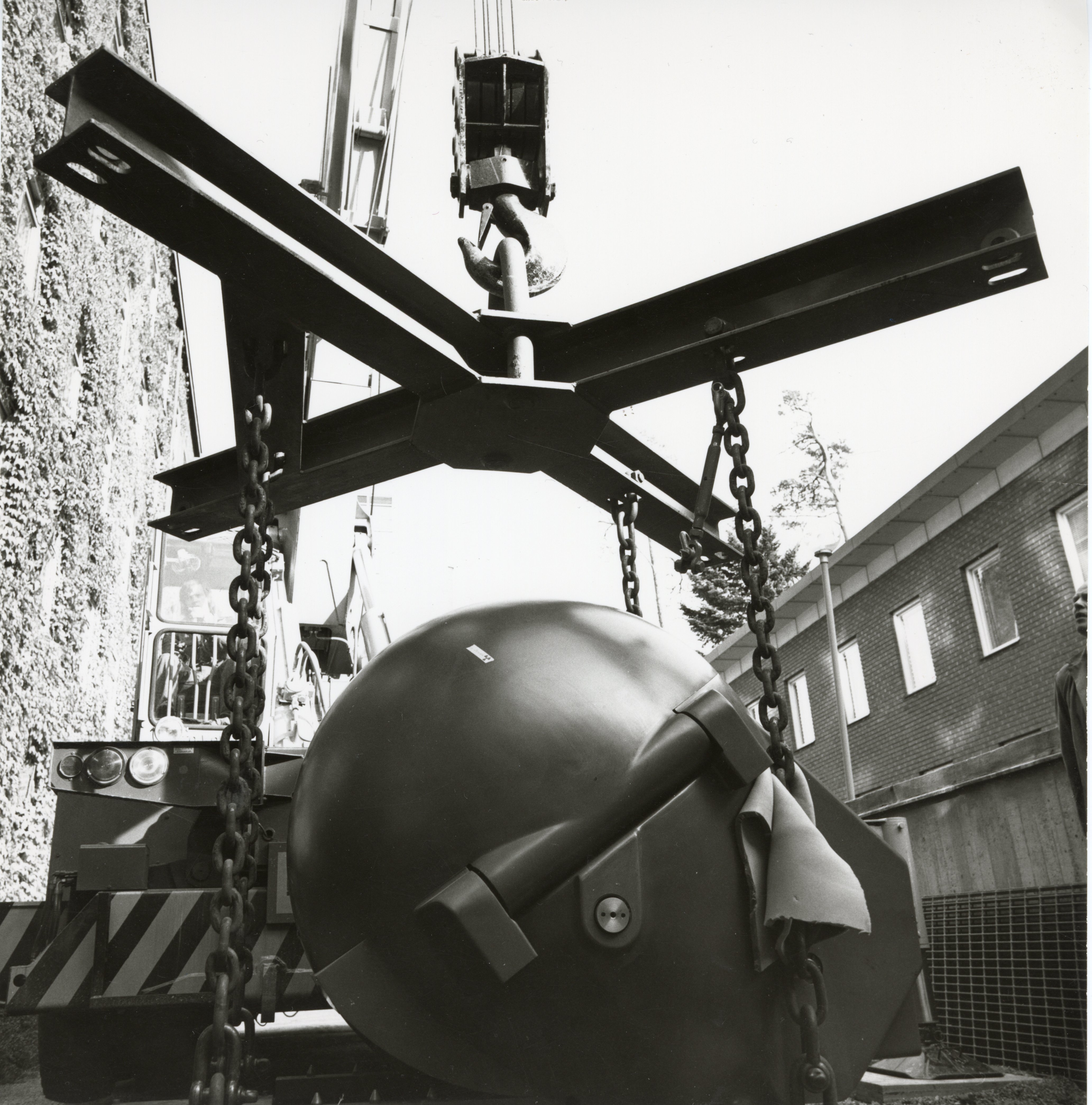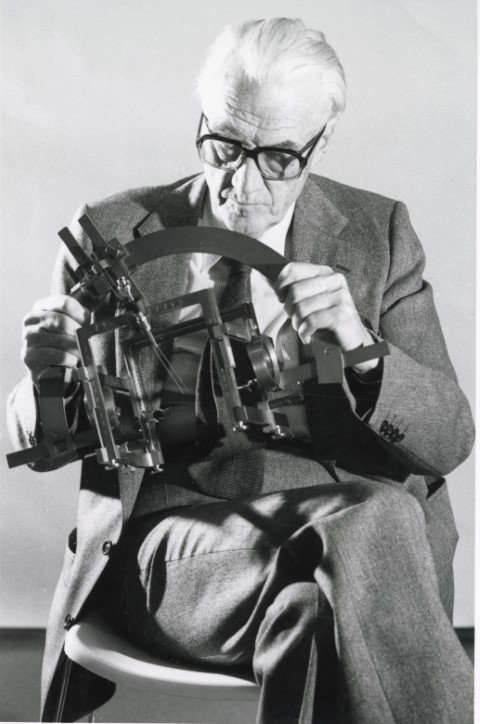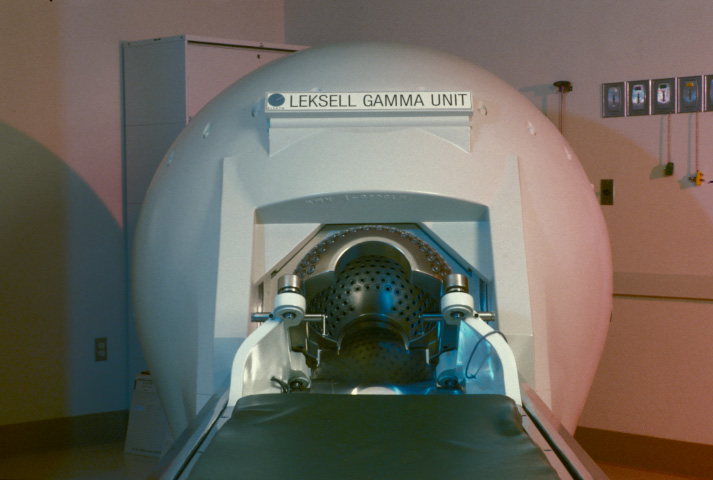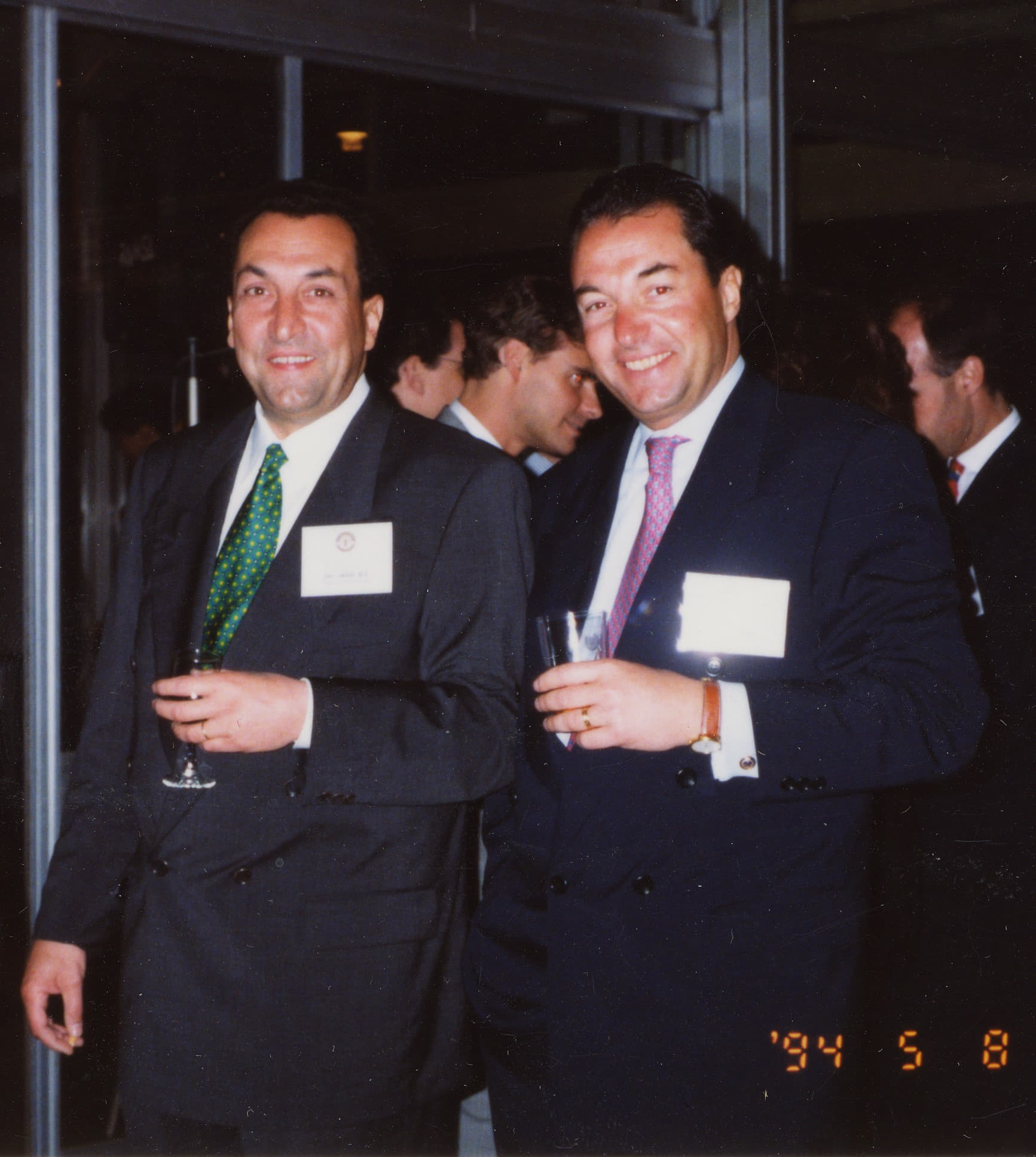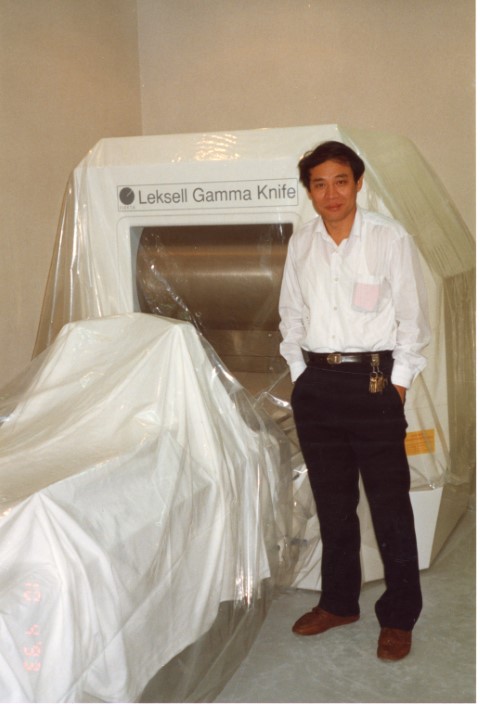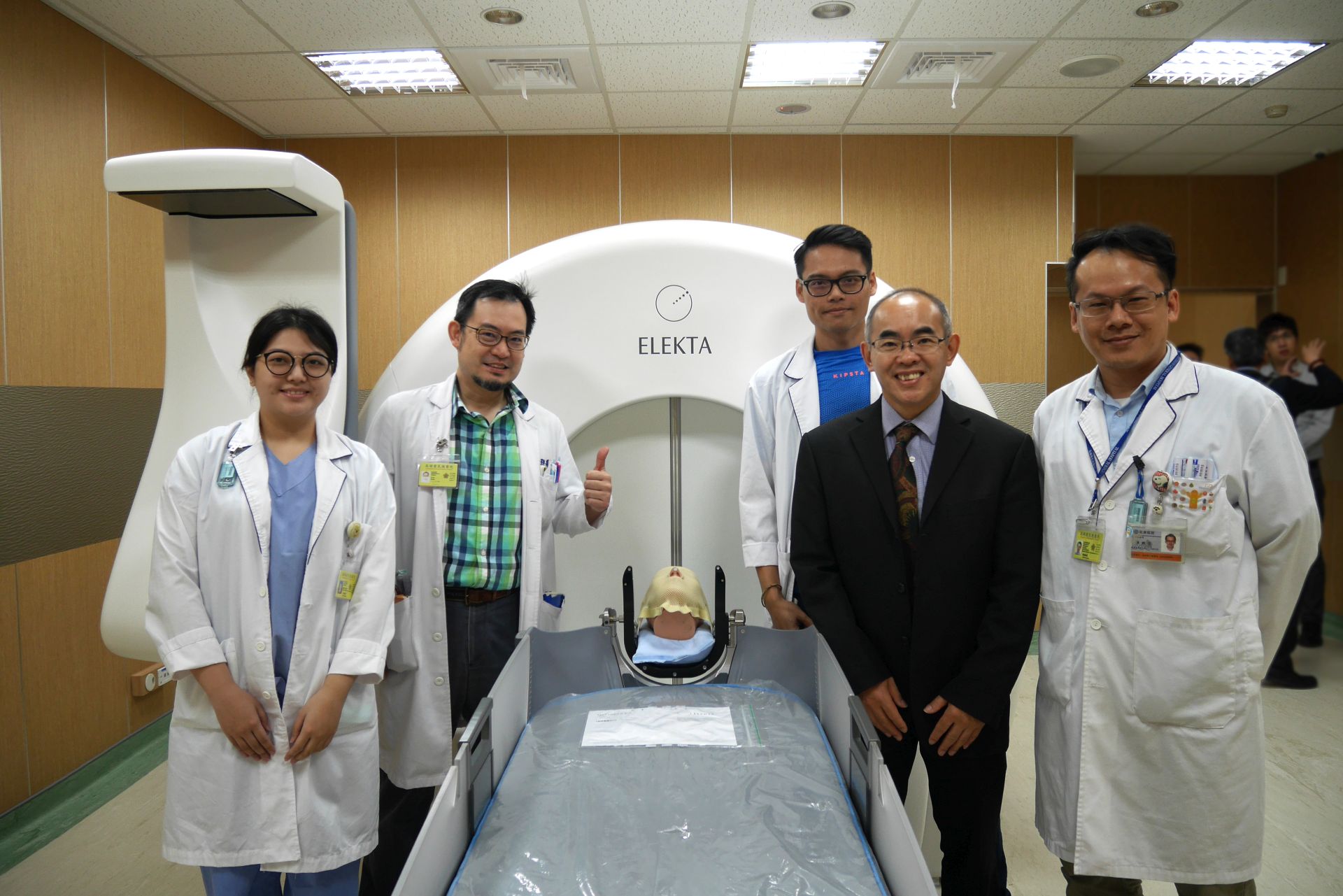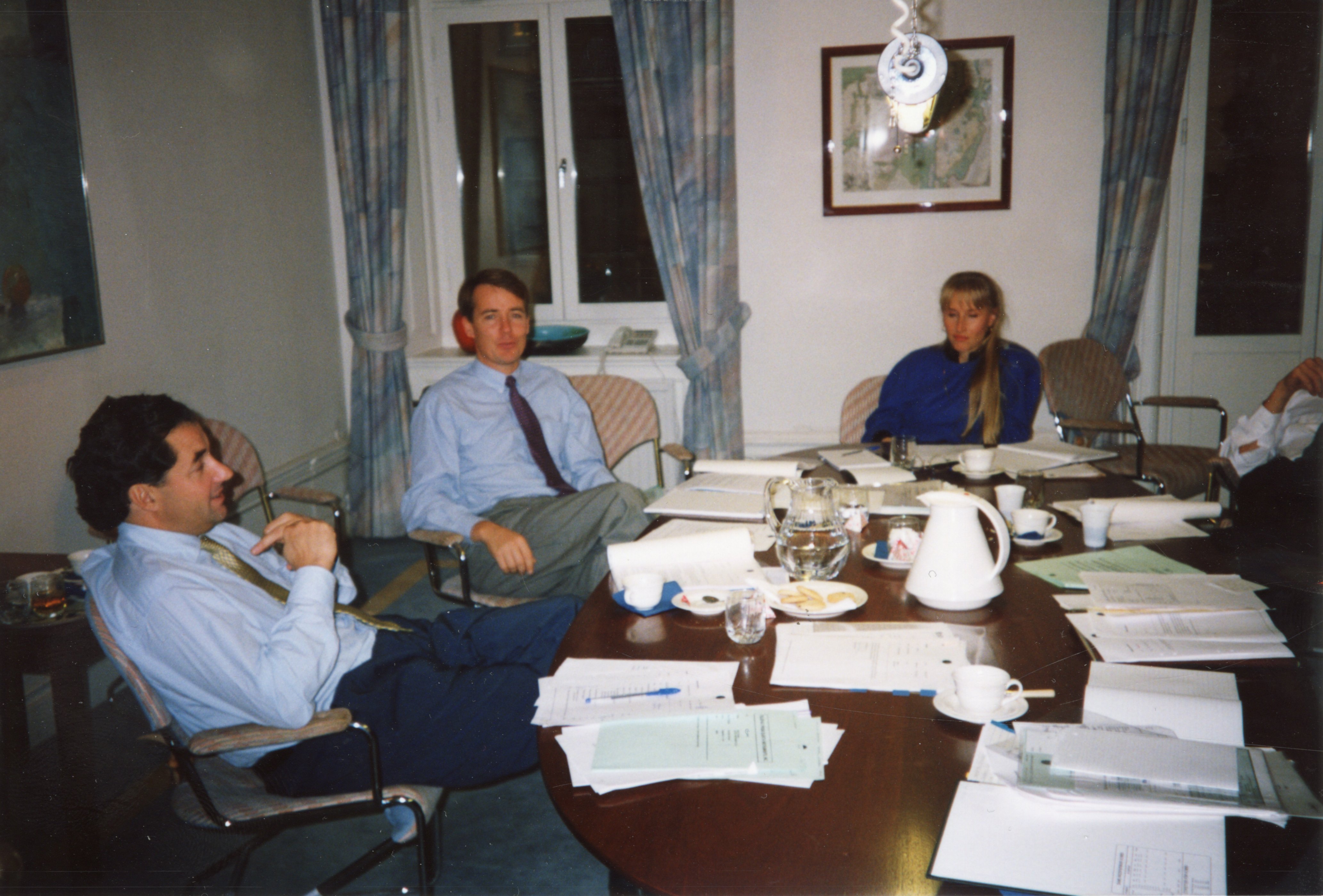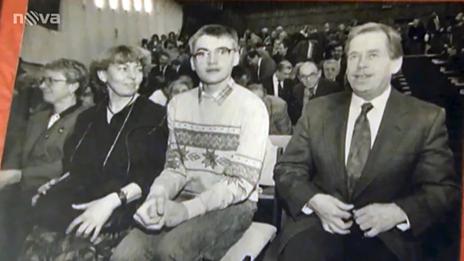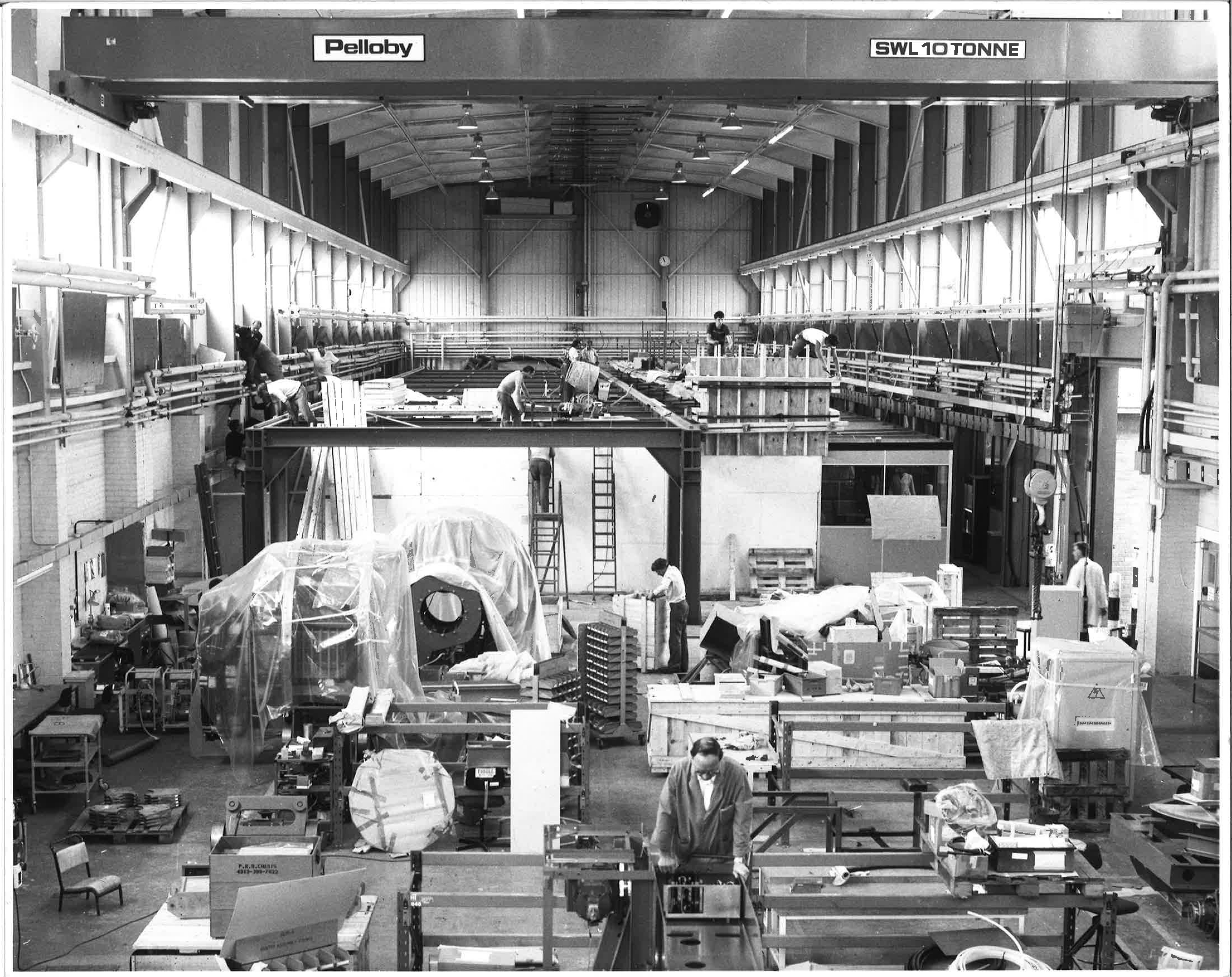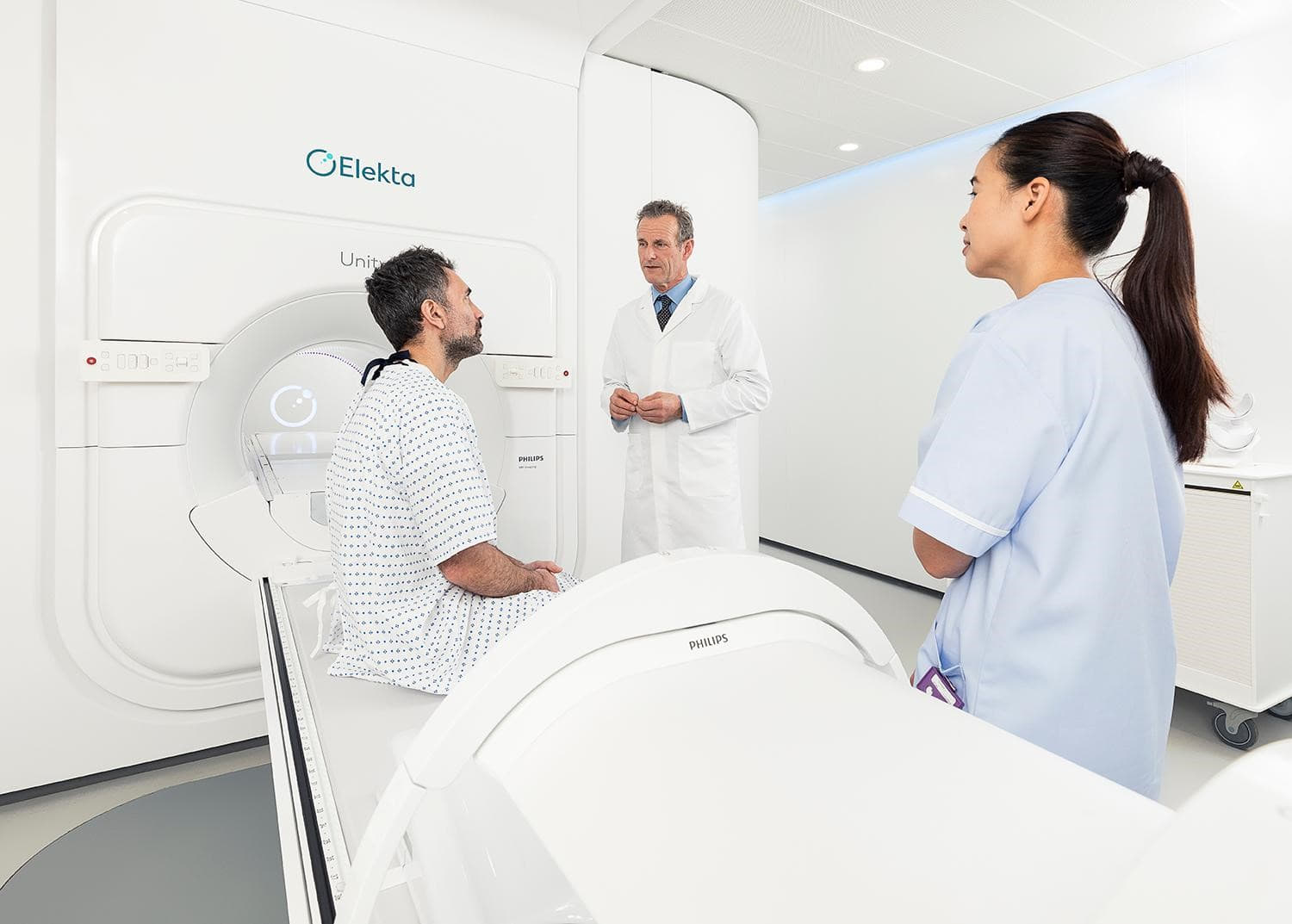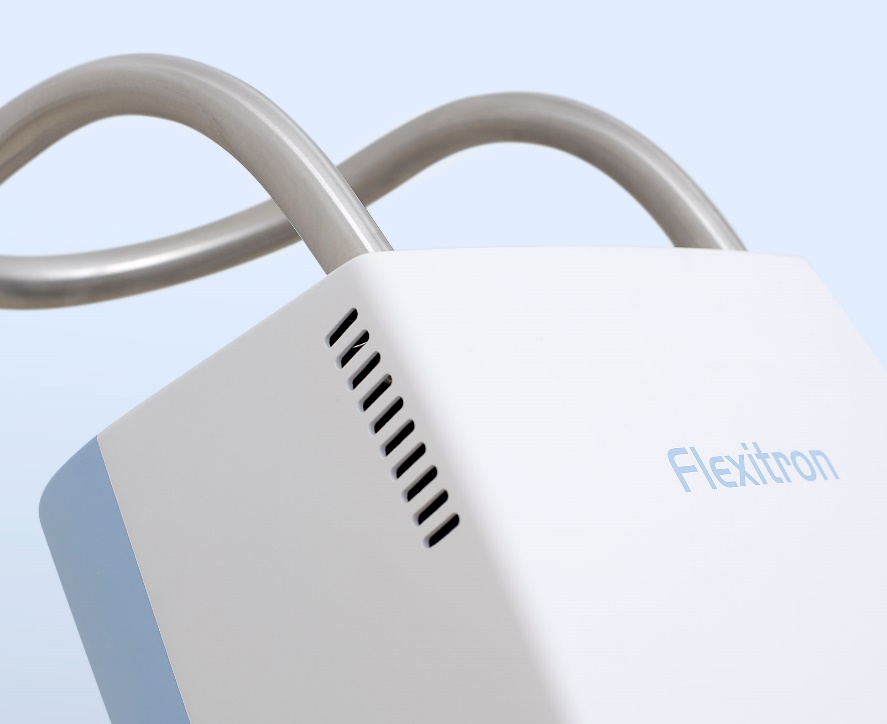Big in Japan
A Company Grows Up, 1986-1993
Reading time: 4 minutes
The introduction to the Japanese market was the most expensive in the company’s history. It included the support of the oldest Swedish trading house in Japan, the emperor’s personal physician and a two-month marathon of trial treatments with zero margin for error.

Elekta’s breakthrough in the USA and a flow of scientific articles about the gamma knife paved the way for new markets as the 1980s turned into the 1990s. Getting a foothold in Japan, the world's largest medical technology market, was one of the company’s major ambitions.
News of the gamma knife seemingly reached Professor Kintomo Takakura, personal physician to the emperor and one of Japan's leading neurosurgeons. On his recommendation, the Japanese ministry of welfare decided to install a machine for trials involving Japanese patients.
Physicist Tomas Puusepp was recruited to Elekta in the late 1980s. He would later rise to serve as group CEO of the company – but was then a fairly new hire.
“Takakura was very progressive and forward-thinking, and he found this to be very interesting. He helped us, together with our distributor Mansson KK, to move the process forward,” says Tomas Puusepp.
The intermediary distributor was the Swedish trading house Manssons (previously Månssons), which already had a 70-year history of doing business in Japan. The company was a fully owned subsidiary of Kebo, part of Beijer Industries, dealing primarily with imports of hospital equipment to Japan.
“Manssons’ CEO was Swedish Stig Sundberg. He and his network were absolutely critical for our initial success in Japan,” says Tomas Puusepp.
The investment in the gamma knife was the largest undertaking Manssons had ever committed to. Just renovating the room at Tokyo University where the system was to be installed cost three million SEK, and the bill for the testing operations came to approximately ten million SEK.
Stop – and go
But chance events could have put a stop to the entire thing before it even got started. While the cargo boat with the Swedish gamma knife on board was on its way to Japan, an unexpected discovery was made at Tokyo University. It turned out that for many years the oncology clinic had been burying depleted nuclear waste from linear accelerators containing cobalt and uranium on hospital grounds.
“This came out just as our gamma knife, with all its cobalt, was on the way to the country, and the discovery made huge waves in the Japanese press,” says Dan Leksell.
“We thought the whole thing was doomed. This is an example of how something beyond your control can go wrong.”
But in the end the Swedish gamma knife was installed as planned. Over the course of one and a half years, thirty patients were treated for the purpose of having the gamma knife approved for clinical use in Japan.
Three of Elekta's employees, Dan Leksell, physicist Jürgen Arndt and neurosurgeon Christer Lindquist, traveled frequently to Tokyo to assist with fine-tuning the equipment.
“We wanted to be completely sure that the Japanese did not choose the wrong type of patient, treat with the wrong dose and so on,” says Leksell.
Elekta's company culture also emphasized building serious and long-term relationships with customers. The corporate ethos was not about flying in for the day, selling a machine and then taking the next flight home. It was about staying for the long term.
Unforgettable Tokyo
The stay in Tokyo was unforgettable. One reason was the weather, which came as a shock for the Swedes.
“We arrived right in the middle of the monsoon season. It was incredibly hot and humid and rained all day and night. We saw a Swedish runner double over during a race. It was completely awful,” recalls Dan Leksell.
Because of the incessant rain, Dan Leksell found himself largely unable to leave the hotel for two months. When checking out, he got the heaviest hotel bill he had ever seen.
“I remember I was standing in the lobby, waiting to check out. The dot-matrix printer that printed the bill just went on and on. Employees gathered around the printer, wondering if it had gotten stuck somehow. It turned out to be the most expensive hotel bill that Elekta ever had by far. I stayed there for two months and ate breakfast, lunch, and dinner there every day. I couldn't go out because it was constantly raining.”
But the unusual hotel stay in Tokyo ultimately turned out to be a good investment. The authorities gave their approval, and the Japanese market was now open to Elekta, which in turn opened the way for more orders in other parts of Asia. Many neighboring countries see Japan as a role model, says Dan Leksell.
“Tokyo led fairly quickly to Seoul, which led to Beijing, which led to Taiwan.”
Elekta is actually one of the few Swedish companies that have been able to succeed in Asia, especially in Japan, says Tomas Puusepp.
“Historically, not many Swedish companies have been able to break through. It’s gotten better in China in recent years, but in Japan it's really difficult. But we at Elekta are one of the companies that has been demonstrably successful in getting into these markets, and I am extremely proud of this.”
Dan Leksell emphasizes that the achievements over these years laid the foundation for Elekta's future as a listed company.
“Without the work done in the years from 1987 up until 1991-92, it would not have been possible to call Elekta a company, let alone have it listed on the stock exchange.”
Did you find it interesting?
Feel free to share it across social media!

